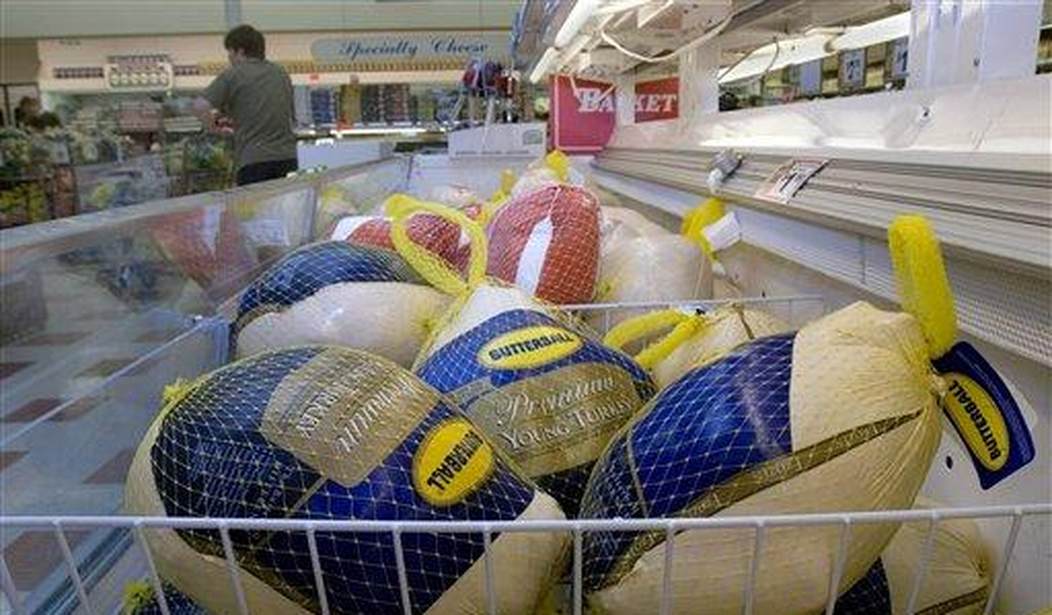Pope Francis has made a number of public statements decrying the waste of food around the globe. Most recently, he voiced his support for the objectives of the World Food Programme. He echoed the words of his predecessor, St. John Paul II, who called food waste "a paradox of abundance." Francis criticized a "culture of waste" that is caused, he says, by "mechanisms of superficiality, negligence and selfishness."
Pope Francis is correct, at least in part. The amount of food that goes to waste in the United States alone is staggering and -- dare I say it -- sinful. According to the U.S. Department of Agriculture, it's somewhere between 30 and 40% of our total food supply every year.
Try to imagine the number of restaurants, bars, grocery stores and cafeterias in any town or city of even modest size. Consider: Every single one of these establishments throws food away every single day. Now multiply that by every town and city in the country.
The problem, therefore, isn't the amount of food; it's getting the extra food to those in need. But as daunting an issue as that certainly is, it's just logistics. It pales, by comparison, to the issue of producing enough food to feed people in the first place.
I note this because Pope Francis is also fond of making statements that are sharply critical of capitalism and can fairly be construed at times as a preference for systems by which a smaller group of well-intentioned central planners decide what is to be produced -- and where, and why, and how, and for whom.
This, as we've seen in the countries where it has been tried, is what creates poverty and hunger -- indeed, famine, starvation and death -- on a massive scale.
Josef Stalin's agricultural "planning" for Ukraine resulted in the "holodomor" -- widespread famine and the deaths of an estimated 6 million people. But even his murderous arrogance, stupidity and cruelty pale in comparison to Mao Zedong, whose disastrous central planning killed more than 40 million people in China -- mostly from starvation. More recently, North Korea's oppressive top-down economic control has starved millions of its people. Venezuela's socialist government has reduced that once-prosperous country to destitute poverty and hunger.
Recommended
By contrast, the reason capitalist democracies like the U.S., Canada, Australia, New Zealand and the countries of Western Europe produce so much food is because they do not depend upon the inevitably flawed decisions of a handful of ultrapowerful people; they unleash the power of millions of individuals who, as entrepreneurs, start and grow farms and businesses involved in food production, packaging, preservation, refrigeration and transportation. These firms not only provide local food but also enable us to get Washington's apples to Indiana, Florida's oranges to Nebraska, Hawaii's pineapples to Maine -- and literally millions of tons of food to other countries.
Entrepreneurs have created for-profit and nonprofit ventures across the country to address food waste and hunger. The startup Imperfect Produce, for example, buys produce that grocery stores don't purchase from farmers because it is "ugly" or misshapen. Philadelphia's Misfits Markets and Hungry Harvest in Baltimore are working to achieve similar goals. Robert Lee and Louisa Chen started the nonprofit Rescuing Leftover Cuisine in New York City in 2013 to combat food waste. In the six years since, they have collected and donated 3.1 million pounds of food, resulting in more than 2.5 million meals served in shelters across the city.
It is possible for us to put our heads together and pool our resources to reduce or eliminate hunger in the United States. We have the production and transportation capabilities, and we have the food.
In countries where not enough food is produced to feed the population, however, the problems are greater. They are systemic. They are typically attributable to the political and economic systems in place. Therefore, they are much, much more difficult to address than the distribution of food to those in need in free and prosperous nations.
Tufts University professor Alex de Waal has written brilliantly about this. In his 2018 book, "Mass Starvation: The History and Future of Famine," he writes that 70% of the deaths from starvation in the past 150 years were caused not by natural disasters but by government policies (British tariffs on the textile industry in India, Hitler's "Hunger Plan" to eliminate "useless eaters," Mao's "Great Leap Forward") and war.
DeWaal's work also reveals what happens when governments implement (or impose) policies based upon popular but flawed "scholarship." In a 2018 interview with NPR's Nurith Aizenmen, de Waal cites the notable example of 18th-century scholar Thomas Robert Malthus' theory that population growth caused famine. History has debunked Malthus' theories over and over again, de Waal explains; humans' capacity for food production has kept up with population growth and even produced the surpluses we have now.
Aizenmen writes: "'I call it a zombie concept," says de Waal, 'because it's one that scholars of agriculture and economics have continually refuted, but it still keeps coming back to life to torment the living.' It torments the living, he elaborates, because the fear that it engenders about population growth has periodically led authorities to pursue policies that -- paradoxically -- actually did create famine."
Aizenmen calls de Waal's perspective on famine "surprising." But it's really only a surprise if you don't know much history (or you've been indoctrinated with Malthusian economics).
On this Thanksgiving Day, we in the United States should give thanks for a political and economic system that frees us to produce enough to feed ourselves and leaves plenty of leftovers with which we can -- given the ingenuity and innovation we've displayed for centuries -- feed others.
It's a little bit like the parable of loaves and fishes. Pope Francis should give thanks for this as well.
To find out more about Laura Hollis and read features by other Creators Syndicate writers and cartoonists, visit the Creators Syndicate website at www.creators.com.

























Join the conversation as a VIP Member